Remember the days of the idyllic Midwest farms with the typical family working side by side, and animals from chickens to cows grazing in the sunlight of a green pasture? Well, those farms are now few and far between, as concentrated animal feeding operation (CAFOs) as they are also known have taken over—essentially forcing many small family farms off their land. Ever since the introduction of mass produced farming in 1960s, it’s a whole new ballgame thanks in part to these large-scale factory farms which have become commonplace all around the country. Illinois has always been known as a farming state, but now CAFOs dot the once beautiful landscape. This issue is important to me and should be a concern to the general public because factory farms have become a monopoly, resulting in forcing once prosperous family farms that helped to support a community to shut down paving the way for mass produced meat and eggs with little to no government regulation or oversight as to proper sanitary procedures for food production, environmental protection and even less concern for animal welfare.
Culture
I have become familiar with the seedy underbelly of factory farming when I volunteered as an undercover investigator and witnessed firsthand the abuses that these animals suffered. Factory farms are known as agribusiness because they put profit above the heath of consumers and the wellbeing of animals. On factory farm lots, as opposed to traditional farms animals such as hogs are housed in cruel, small cramped confinement known as gestation crates. These offer them no room to move around and are measured at around 19-26”Wx 6.5-8”L. Many people are under the impression that these are a recent invention, but have actually been around since the late 1800s. The majority of these animals are in gestation crates, and “83% of sows farrow in confinement facilities” (USDA-NAHMS, 2000). These animals live out their lives in fear and misery, often living in their own waste and are continually bred to mass-produce in order to send larger amounts of pigs to slaughter.
Pollution
CAFOs produce “waste lagoons” with high concentrations of ammonia, hydrogen sulfide, among other harmful substances. Joseph Mercola reports, “Animals and workers have died or become seriously ill in swine IFAP [Industrial Farm Animal Production] facilities when hydrogen sulfide has risen from agitated manure in pits under the building.” (Mercola, 2013). Many of these large waste pools are larger than ten football fields and often time’s leak into the water supply in local communities. Farming states such as Iowa and Illinois have seen a dramatic increase in the number of CAFOs moving in and replacing family farms–which has also increase the amount of water and air pollution. There have reports made to the CDC regarding cases of illness such as asthma, chronic diarrhea, headaches, high blood pressure, and birth defects stemming from bacterial toxins in animal waste that have spread into nearby watersheds.
The EPA has been alerted to this problem and many have requested that they place a mandate on the amount of factory farms in the United States, limit their proximity to homes and schools, and add mandatory waste treatment systems; however it seems to fall on deaf ears as there are still no laws regulating this industry. “In 2008, a Government Accountability Office report panned the U.S. Environmental Protection Agency (EPA) for failing to know where most of these farms were located, let alone if they were releasing their manure into rivers, lakes, and streams”. (Ogburn, 2012). However the battle rages on and scientists and community activists (such as local Michigan farmer, Lynn Henning) continue to pressure Congress, the EPA, the CDC and USDA to enact legislation to protect both animals and the human health.
Alternatives to Factory Farming
There are practical, affordable, and more humane options available to consumers including but not limited to: organic farming, farming cooperatives, purchasing certified humane raised & handed foods which requires that animals are raised free range in natural settings, fed a healthy diet and free of antibiotics. Legal restrictions also need to be applied to these facilities so that they are better regulated, forced to obtain permits, submit data and records to the EPA and USDA of waste pollution levels, reduce the speed of kill lines, and held accountable if they violate environmental or animal welfare laws. All of this is doable and can be accomplished if advocacy and community groups continue to garner attention to this issue and pressure Congress to act. For now, however it’s a waiting game and even though progress has been made, it is still slow going.
Corruption Within Protection Agencies
The issue of animal abuse and neglect among farm animals has been debated and discussed, but not enough has been done to rectify the problem from a legal standpoint. It only makes matters more complicated as knowledge that wide spread cover-ups of Animal Welfare Act violations have become commonplace. Furthermore, there are disturbing trends in the agri-business industry, including but not limited to a lack of proper investigation from the EPA, increased speed on kill lines, certain states including but not limited to Kentucky and Idaho passing their own versions of the ag-gag bill which bans undercover footage; subsequently making reporting illegal and punishable by jail time and fines. As well as going so far as to ignore complaints from whistleblowers—and even worse, the punishment of whistleblowers by firing, lawsuits, or even jail time.
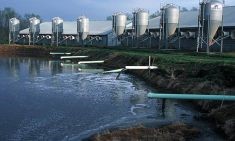
Typical Midwestern factory farm and the waste emitted into waterways. Photo by Jeff Vanugam
Crate Free Illinois
For those still inclined to consume meat and dairy, but are repulsed by the typical factory farm, this is where Crate Free Illinois comes in. This small, fairly new non-profit organization is working hard to research and compile local farmers who use humane practices and focus on quality produce, while helping to sustain the economy by buying local. In this situation education is key because if consumers have instant access at their fingertips to state wide farmers identified by Crate Free Illinois, they can in effect shop easily and with peace of mind that their meal did not suffer their entire lives being beaten and confined in misery.
Make Your Voice Heard
The best way to help put a stop to this besides researching where your meat comes from and only buying from humane farmers, (or becoming a vegetarian/vegan) is to make your voices heard, and this is easily done in the voting booths. If we as consumers refuse to elect officials with an anti-animal welfare mentality, then it makes it that much harder for these individuals to pass their profit-driven agenda. Everyone can make a difference in their own way from creating and signing petitions, contacting their member of Congress and altering their lifestyle. It all starts with you.
About the Author
Rachel Wales is an environmental science teacher, and freelance writer for The Chicago Examiner and Crate Free Illinois. She is a vegan and long time animal rights activist. Rachel lives in Chicago with her husband and her rescue dog Ziggy. She is also a big fan of all Chicago teams, and on days off can be found on the soccer field or basketball court.
Sources:
- “The Hazardous Truth about Factory Farming” · Staff Writer Project Censored July 24, 2013.
- “Why should EPA regulators investigate factory farm pollution when they can go get a beer instead?” · Stephanie Ogburn Grist July 23, 2012.
- “Factory Farm Pollution Causes High Blood Pressure” · Jill Ettinger com – Organic Blog November 7, 2012
- “Factory Farm Pollution Alert: EPA Has No Clue How Many Farms Exist” · Energy News Headlines – Yahoo! News August 3, 2015.
- “Michigan Farmer Fights Livestock Factory Farm Pollution” · AudubonMagazine YouTube April 19, 2010.
- Joseph Mercola, “A River Of Waste: The Hazardous Truth About Factory Farms,” Mercola.com, April 6, 2013, http://articles.mercola.com/sites/articles/archive/2013/04/06/river-of-waste-documentary.aspx.
Model Publications:
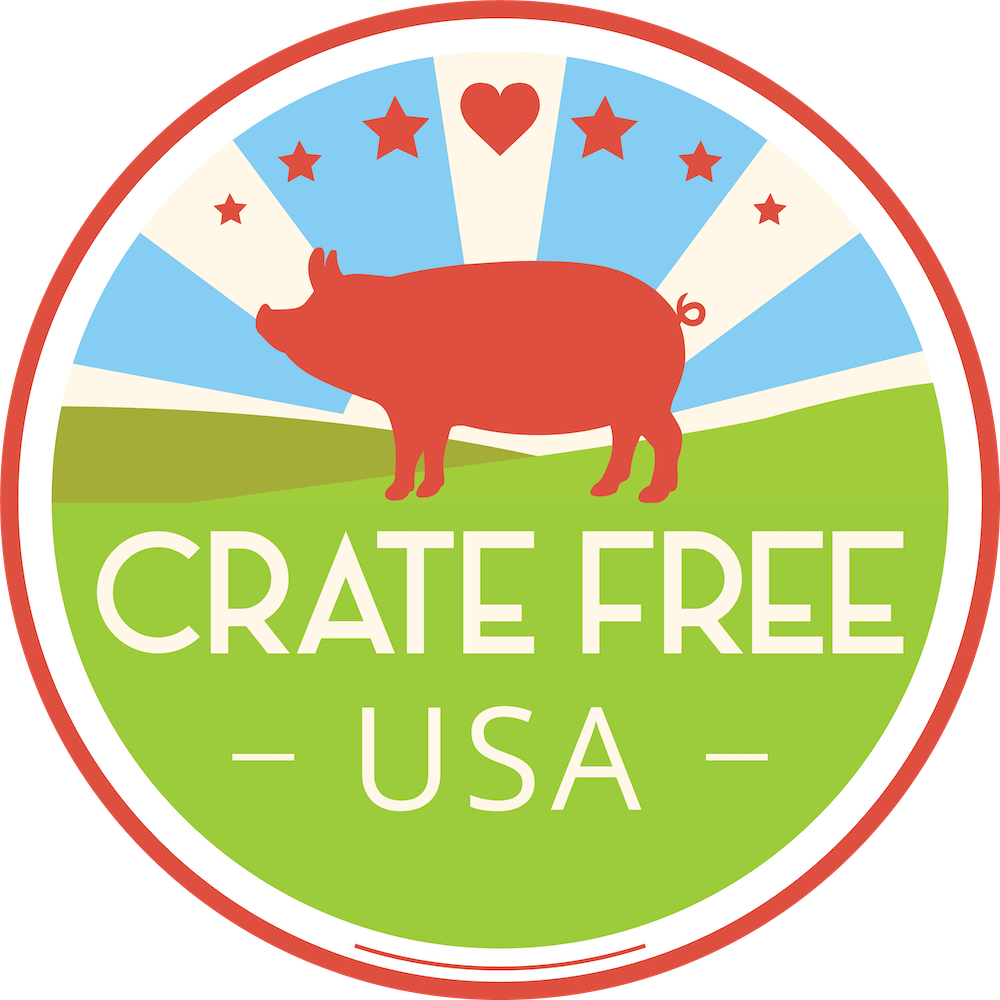
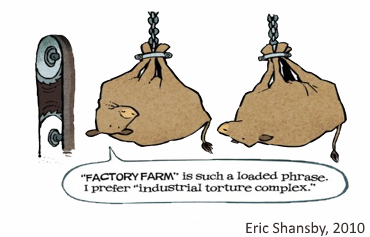
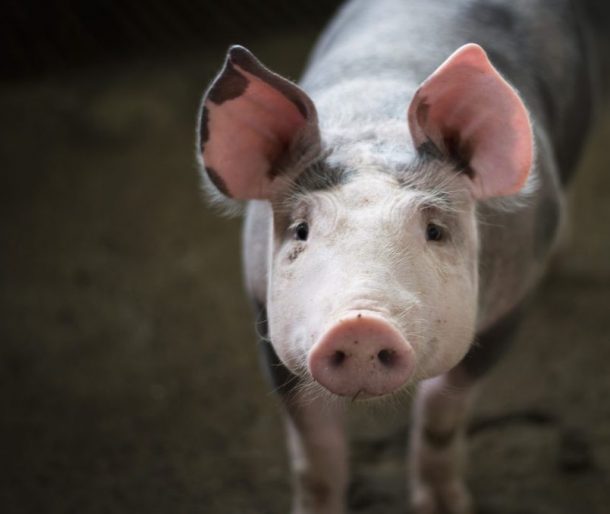

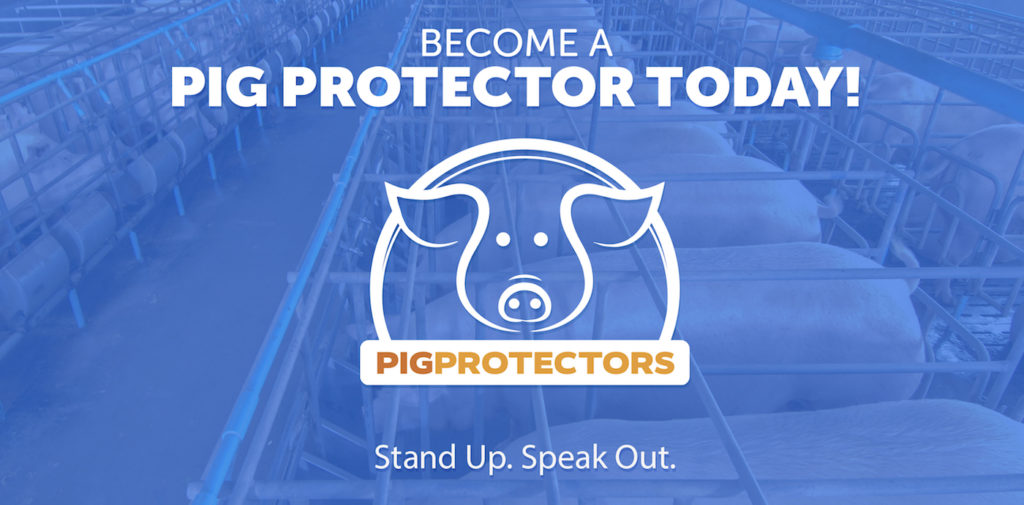
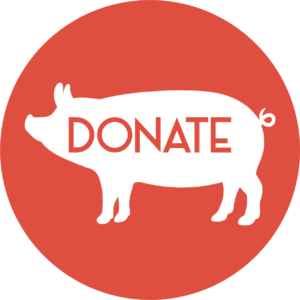
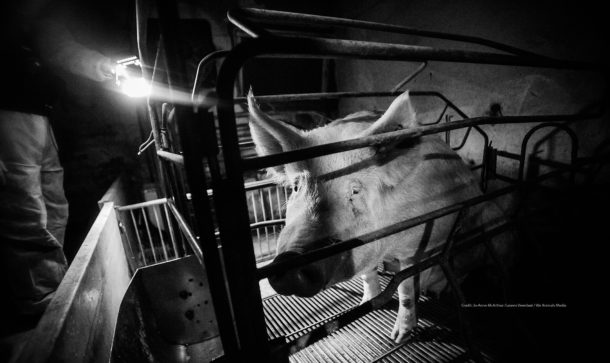
How can one help?